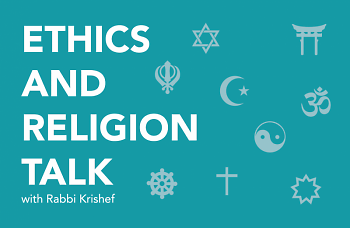This is the second set of responses to a question we began answering last month.
Rev. Ray Lanning, a retired minister of the Reformed Presbyterian Church of North America, responds:
“Scottish Presbyterianism has long promoted the ideal of ‘a free church in a free state.’ There is a long and sad history of attempts by kings and princes to meddle in the life and work of the church, and equally, for popes and bishops to intrude into affairs of the state. Experience teaches that it is best for each of these divine institutions to observe a line of demarcation between them.
“Many Presbyterians have promoted the idea of a national establishment of the church, in part to acknowledge Christ’s lordship over the nation. But as the old saying goes, ‘He who pays the piper calls the tunes.’ If Caesar pays the salaries of the church’s ministers, Caesar expects them to promote his policies, obey his commands, and defend his actions. In Scotland, attempts by the king to rule the church according to his own lights resulted in a long and bloody conflict known as the Killing Times.
The American solution of a ‘wall of separation’ between church and state is not perfect. The life and work of the church must be conducted lawfully, according to the laws of both God and man. Church members are also citizens of the commonwealth, and these two identities sometimes conflict. Church members do well to remember that the church is an international and supra-national institution, whose first loyalty is to Christ and His gospel, not to our country and its flag.
The Reverend Colleen Squires, minister at All Souls Community Church of West Michigan, a Unitarian Universalist Congregation, responds:
“As a religious denomination, Unitarian Universalism strongly supports the separation of Church and State. And I would think every religious/secular minority in the country would feel the same way. Our government should treat every individual equally under the law without influence from any one religion’s belief. This topic has far reaching effects on many areas of life but let’s take just one example regarding the issue of marriage; to treat people equally all couples are now finally given the right to marry and to receive tax benefits under the law of the land. Rightfully so, each religion has the right to affirm and support this ruling by allowing all wedding ceremonies to occur in their church or they have the option to decline or forbid certain ceremonies. This is what separation of Church and State looks like.
“The greatest obstacle to Equal Marriage was from the Christian church. Our government denied citizens from the LGBTQ community a rite easily granted to our neighbors based on the dominant religion of this country; there was no separation of Church and State which is a failure of a democracy. With Equal Marriage more citizens are given equal treatment under the law and has not affected anyone’s ability to practice their religion.”
The Rev. Steven Manskar, pastor of Trinity United Methodist Church in Grand Rapids, responds:
“In Luke 20:20-26 Jesus is confronted by ‘spies’ who tried to trap him with the question, ‘Is it lawful for us to pay taxes to the emperor, or not?’ Jesus asked one of them to show him a coin. He said, ‘Whose head and whose title does it bear?’ They said, ‘The emperor’s.’ Jesus said, ‘Then give to the emperor the things that are the emperor’s, and to God the things that are God’s.’ Jesus did not possess a coin. He reasoned since it had Caesar’s image stamped on it the coin belongs to the emperor and should rightfully be returned to him.
When Jesus says, ‘and to God the things that are God’s’ he’s referring to the people, all of whom bear God’s image. All people, even Caesar, belong to God.
The church is a more faithful witness to the gospel of the coming reign of God on earth as it is in heaven, when it is not encumbered by the state. When the church sees itself as representing the true Ruler of the Universe, and not beholding to temporal powers, it can faithfully carry out Jesus prophetic commission (Luke 4:18-19).
My response:
The Jewish community has two thousand years of living under Christian or Moslem hegemony under its belt, which has taught it that while occasionally a benevolent ruler will protect minority religious rights if it is in their interests to do so, far more often the Jewish community has suffered under the stewardship of the Church or an Islamic republic.
On the whole, diaspora Jews have flourished under the system of separation of Church and State more so than at any time in history. Thus, the Jewish community is grateful to Thomas Jefferson for his conception of the wall of separation between Church and State, and to James Madison for including the establishment clause in the Bill of Rights.
This column answers questions of Ethics and Religion by submitting them to a multi-faith panel of spiritual leaders in the Grand Rapids area. We’d love to hear about the ordinary ethical questions that come up in the course of your day as well as any questions of religion that you’ve wondered about. Tell us how you resolved an ethical dilemma and see how members of the Ethics and Religion Talk panel would have handled the same situation. Please send your questions to [email protected].
The Rapidian, a program of the 501(c)3 nonprofit Community Media Center, relies on the community’s support to help cover the cost of training reporters and publishing content.
We need your help.
If each of our readers and content creators who values this community platform help support its creation and maintenance, The Rapidian can continue to educate and facilitate a conversation around issues for years to come.
Please support The Rapidian and make a contribution today.
